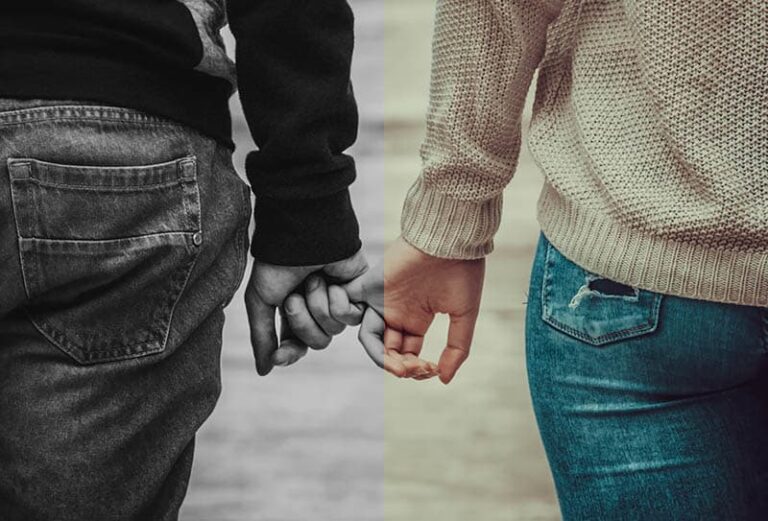16 Signs You’re Not In Love Anymore, You’re Just Afraid To Be Alone
In relationships, the line between love and fear can blur, leaving you questioning whether your heart is truly invested or if you’re merely afraid of solitude.
These 16 signs may help you understand your true feelings and guide you toward making the right decision for both you and your partner.
1. You miss who they were—not who they are now

Nostalgia can often romanticize the past, making you yearn for the person your partner used to be. This longing is a clear indication that the current state of the relationship isn’t fulfilling. Instead of cherishing the person beside you, you’re clinging to memories.
Relationships evolve, and so do people, but holding on to a past version of your partner prevents you from appreciating their present. This fixation can create emotional distance, casting a shadow over the current dynamics. Reflect on whether you’re genuinely in love with who they are today or just the memory.
2. You dread time alone more than time together

Being afraid of solitude can overshadow genuine feelings of companionship. If you find yourself preferring the discomfort of a strained relationship over your own company, it may signal fear rather than love. This fear-driven mindset can hinder personal growth and self-awareness.
Often, the idea of being alone feels daunting, making companionship seem like the lesser of two evils. Yet, true companionship should be comforting, not a mere escape from loneliness. Consider whether you’re with someone because you cherish their presence or because you dread your own.
3. You avoid thinking about the future

Futures are built on dreams shared, but when you find yourself dodging thoughts of what’s to come, it might be a sign. A reluctance to discuss or even consider future plans together might indicate that your heart isn’t truly in it. Instead of envisioning a shared path, you avoid the topic altogether, focusing solely on the present or reminiscing about the past.
The absence of future-oriented conversations can hinder growth and understanding. Evaluate whether you’re avoiding these discussions out of fear of commitment or uncertainty about the relationship’s longevity.
4. You’ve stopped sharing real parts of yourself

Intimacy thrives on openness, but when you start to withhold your true self, it signals a deeper issue. Sharing your inner world is crucial for connection, but if you find yourself censoring your thoughts and emotions, the relationship may lack the trust and understanding it needs.
This withholding stems from a fear of vulnerability or a belief that your partner won’t understand or appreciate your truths. As you build walls, the distance grows, leaving you feeling isolated even when together. Delve into why you might be holding back and address the root causes.
5. Their presence feels like habit, not comfort

Routine can sometimes masquerade as connection. If your partner’s presence feels more like a habit than a source of comfort and joy, it might be time to reassess. The vibrancy of love should create warmth and reassurance, not mere familiarity.
When interactions become automatic and devoid of genuine emotion, it’s a sign of emotional withdrawal. This detachment can lead to feelings of being stuck in a cycle, where the relationship is maintained out of inertia rather than love. Reflect on what brings you together and if it’s rooted in genuine affection.
6. You feel more relief than love after a fight

Conflict resolution should ideally bring partners closer, fostering understanding and growth. However, if you only feel relief rather than deeper connection after disagreements, it may point to underlying issues. Relief signifies the end of discomfort but not necessarily the resolution of core problems.
This pattern can erode the foundation of love, replacing it with a cycle of conflict and temporary peace. It’s crucial to evaluate whether these conflicts lead to constructive outcomes or just the avoidance of confrontation.
7. You stay busy to avoid connection

Busyness can sometimes be a shield against facing relationship realities. If you find yourself constantly occupied to dodge meaningful interactions with your partner, it could signal avoidance. This diversion might be a way to escape dealing with emotional issues or discomfort within the relationship.
While staying productive is positive, it shouldn’t come at the cost of genuine connection. Evaluate whether your hectic schedule is a subconscious attempt to evade intimacy and if so, consider addressing the underlying fears.
8. You can’t remember the last time you truly laughed together

Shared laughter is a vital component of a healthy relationship. If you struggle to recall moments of genuine joy and laughter with your partner, it may reveal emotional distance. Laughter tends to be spontaneous and reflective of comfort and connection.
The absence of such moments can indicate that the relationship has become stagnant, lacking the vibrancy of mutual enjoyment. Reflect on the dynamic you share and whether it allows for light-heartedness and fun, which are essential for a fulfilling partnership.
9. You fantasize about being single—but feel guilty

Fantasies of singlehood might suggest that the relationship isn’t fulfilling or meeting your needs. However, the accompanying guilt often indicates a conflict between desire and duty. This inner turmoil can stem from societal expectations or personal fear of hurting your partner.
While it’s natural to occasionally wonder about different life paths, frequent fantasies can highlight deeper dissatisfaction. It’s important to explore these feelings honestly and determine whether they point to unmet needs or a genuine longing for independence.
10. You’re constantly seeking reassurance from others

Relying on external validation can indicate a lack of confidence in your relationship. If you constantly seek reassurance from friends or family about your partnership, it may reveal uncertainties. This behavior often stems from unresolved doubts or insecurities about the relationship’s stability.
Instead of addressing these issues directly with your partner, you might look to others to affirm your choices. This dependence on outside validation can undermine intimacy and trust, impacting the relationship’s foundation.
11. You’ve stopped trying to fix things

When the desire to resolve conflicts or improve the relationship wanes, it can signal emotional detachment. Apathy towards working through issues suggests that you’ve emotionally checked out. This lack of effort can stem from fatigue, hopelessness, or a belief that the relationship is beyond repair.
Without the willingness to address problems, the bond weakens, leading to further disconnection. Reflect on whether this reluctance to engage is due to a loss of love or a deeper fear of facing uncomfortable truths.
12. You stay for the convenience, not the closeness

Convenience often masquerades as a reason to stay, overshadowing the lack of emotional closeness. When practical benefits replace genuine connection, the relationship becomes transactional. The ease of shared responsibilities or living arrangements can create a false sense of security, masking the absence of true affection.
It’s essential to differentiate between convenience and closeness, as the former lacks the depth needed for a meaningful partnership. Consider whether remaining together is due to mutual affection or mere practicality.
13. You feel trapped by your own loyalty

Loyalty is commendable, but when it begins to feel like a trap, it can indicate deeper issues. If you feel obligated to stay due to past commitments rather than present love, it might suggest emotional imprisonment.
This feeling of being trapped often arises from guilt or fear of hurting your partner, overshadowing genuine affection. Evaluate whether your dedication stems from love or a sense of duty, as the latter can prevent personal growth and fulfillment. Understanding these dynamics can guide your next steps.
14. You keep hoping something will “click” again

Hope can be powerful, but it should not replace reality. If you find yourself waiting for the relationship to magically improve without making active changes, it may indicate avoidance. This passive hope can prevent you from addressing underlying issues, leaving you stuck in a cycle of waiting and disappointment.
Relationships require effort, communication, and mutual understanding to thrive. Hoping for a change without action suggests fear of confronting the truth or uncertainty about the relationship’s future.
15. You fear regret more than you feel love

Regret can be a powerful deterrent, overshadowing genuine feelings of love. If the fear of future remorse drives your actions more than current affection, it might reveal underlying insecurities. This fear often stems from uncertainty about making the right choice or hurting your partner.
When regret looms larger than love, it suggests a conflict between what is and what could have been. Reflect on your motivations and whether they stem from love or apprehension, as clarity is essential for a fulfilling relationship.
16. You confuse comfort with emotional safety

Comfort often provides a false sense of security in relationships. While emotional safety is crucial, mistaking mere comfort for deeper security can lead to complacency. If you find solace in routine but lack genuine emotional support, it may indicate a superficial connection.
Emotional safety involves trust, understanding, and the freedom to express oneself, which comfort alone cannot provide. Evaluate whether your relationship offers true emotional security or just the ease of familiarity, as the distinction is vital for a meaningful bond.






